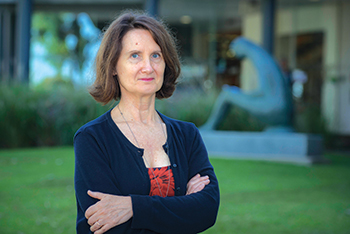Everyone… has a cave or den of his own, which refracts and discolours the light of nature, owing either to his own proper and peculiar nature; or to his education and conversation with others; or to the reading of books, and the authority of those whom he esteems and admires; or to the differences of impressions, accordingly as they take place in a mind preoccupied and predisposed or in a mind indifferent and settled….” [Francis Bacon, Novum Organum, 1620]
I came across this quote when researching how the ‘fake news’, or as it is also called, the ‘post truth’ phenomenon, was being presented to the public.
Weighty words, but the message from Bacon, so many years ago, is simple and still relevant – we form our own sense of the world from our experiences, our preferences and beliefs, as well as any information we read. Getting to the truth of things is always an issue. I had been curious to see if the ‘fake news’ phenomenon was itself only sensationally reported or if there was indeed a commitment to offering meaningful journalism to people on this disturbing direction from what is, for most people, their only source of public information. I was heartened to find not only a range of commentary, but that this included the voice of a range of scholars; their voices included thoughtful reflections on the health of our democracies, the role of digital technology in what can be understood as a very long standing human weakness for simplicity over complexity, and how we should be hesitant about adopting repressive measures to fight the fake news.
I am proud to present here, in this first edition of Research+ for 2018, a range of research highlights tackling complex social issues that are too often reduced to simplistic views and subject to either stereotyping (Dr. Fincina Hopgood on the portrayal of mental health in film, Dr. Duane Duncan on men’s health, and Dr Susan Watt on refugee experiences), censorship (Associate Professor Richard Scully on cartoons), colonialism (Professor Anne Pender on Biography and Australian actors and Victor Briggs on Indigenous history), or in the case of housing and the idea of ‘home’ (Adjunct Professor Michael Fox), are simply too close to many of our assumptions to bear thinking about. Rounding out this issue, the realities of life faced by people in conflict zones are brought into sharp focus in an interview with Professor Helen Ware.
The theme of this Research+ edition is broadly pitched, supporting research in a range of disciplines, often crossing discipline boundaries, and encouraging meaningful engagement with communities and issues of significance, both locally and worldwide. It is proposed that this allows for particular voices and issues to come forward, through rigorous research methodologies, to bring realities to our attention that we might not otherwise pay attention to, but that might importantly concern the issue of truth.
Dr Fiona Utley
Research Development
Office of the DVC (Research)


